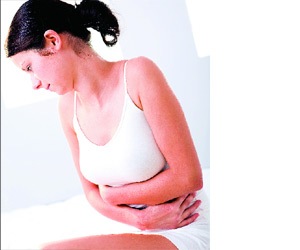All that bile
Taking cholesterol-lowering drugs has been linked with gallstones,lowering blood cholesterol increases bile cholesterol and this,in turn,promotes stone formation.

Gallstone disease,a lifestyle-related condition,is multi-factorial in origin,with interaction of both genetic and environmental factors. Common risk factors include obesity,ageing,hormone estrogen treatment,pregnancy,diabetes,Crohns disease,cystic fibrosis,liver disease and crash dieting.
A gallstone is a solid mass that forms in the gall bladder largely from cholesterol or mixtures of bile salts digestive juices of the liver,calcium and bile pigment. Gall bladder is the organ that stores and concentrates bile: a substance produced by the liver to digest fats. A stone is formed as cholesterol precipitates when there is a lower concentration of bile acids,water and emulsifying agents lecithin in bile. These may be as fine as beach sand or as coarse as river gravel or stones ranging from 5 mm to 25mm. Built over years,the estimated growth rate is approximately 2 mm per year.
Since gallstones are asymptomatic and are formed over years,many people may never know they have them. Common symptoms include bloating,belching,heartburn,fullness,abdominal discomfort/pain,indigestion and nausea especially after food. For some,however,the presence of gallstones can cause pain in the upper right abdomen when the gallbladder contracts to release bile after a meal. Inflammation of the gall bladder can bring on sudden,severe pain extending to the back and under the right shoulder blade,with fever,chills,and vomiting. If stones obstruct the flow of bile,the skin and the whites of the eyes become jaundiced. Left untreated,stones can lodge in the bile duct and cause inflammation of liver or pancreas and may even result in cancer gallbladder.
Taking cholesterol-lowering drugs also has been linked with cholesterol stones. Lowering blood cholesterol increases bile cholesterol and this,in turn,can promote stone formation. Also,women taking oral contraceptives or hormonal medication progesterone and estrogen are at an increased risk for gallstone formation. Prolonged parenteral nutrition also increases risk.
Dietary factors have been associated with a higher risk of development of gallstones. These include energy intake total calories,cholesterol,fatty acids,fiber,carbohydrates,vitamins and minerals and alcohol intake. Consumption of simple sugars and saturated fat hydrogenated fats has been mostly associated to a higher risk.
High calorie diets have been associated with formation of gallstones mainly due to its contribution to obesity. Interestingly,overweight middle-aged women are 2-3 times more at risk than men. On the other hand,very low calorie diets VLCDs of less than 1,100 kcals a day and very low fat diets increase the risk of gallstone formation.
Mono-unsaturated fats like those present in mustard,canola,olive and most nuts have been found to decrease the risk of stone formation. Poly-unsaturated fats omega -6 type like those in safflower,sunflower,corn,soyabean oils and saturated fats in margarine and vanaspati have been found to increase the risk. However,the omega-3 poly-unsaturated fats like those in fish oil and flaxseeds offers a significant reduction in stone formation. Preliminary studies also suggest a protective role of medium-chain triglycerides found in coconut.
Cholesterol content of diet has been found to be inconsistently associated with gallstones. However,plant sterols found in legumes,daal,chana,rajma,soya,nuts and seeds is significantly protective.
Carbohydrates in refined sugars and sugar-sweetened beverages are strongly correlated with gall bladder disease. More than eight teaspoons 40 grams per day doubles the risk of symptomatic gallstones. On the other hand,high fibre intake and moderate consumption of alcohol have been found to reduce the risk. High-fibre diets may help increase bile flow,thus preventing stone formation.
The role of certain vitamins and minerals,like vitamin C,folic acid,vitamin E,magnesium and calcium have been investigated. Vitamin C and calcium have been found to be beneficial in preliminary studies.
A protective effect of modest coffee drinking has also been associated with risk reduction,although more studies are needed before recommendations can be made.